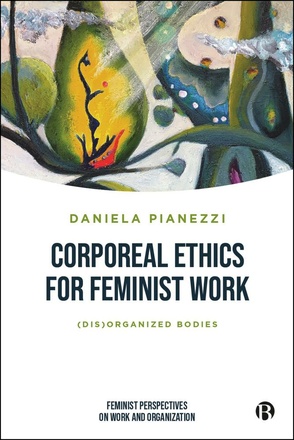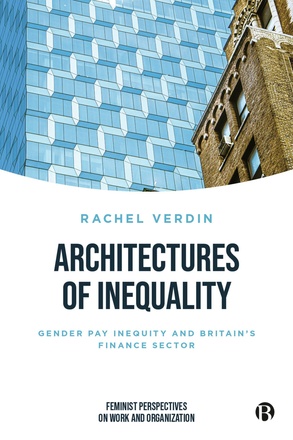Feminist Perspectives on Work and Organization
Series editors: Emma Bell, The Open University and Sheena Vachhani, University of Bristol
This interdisciplinary series will publish books that explore a range of issues around feminism, feminist theory and philosophy, and intersectional and decolonial feminist approaches applied to various contexts of formal and informal work and organization. Books will offer a critical approach to organizations as sites of ethical and political feminist practice. We also wish to examine the intersections between feminist academics and their scholarship, and the impact these approaches can have on organizations. For example, we will consider reflexive, critically engaged proposals that reflect on the potential and contradictions of being an intellectual activist. Movements such as #MeToo and The Everyday Sexism Project and the increasing popularity of feminism suggest interesting and timely developments in feminist organizing and we will look at manuscripts that engage in a variety of feminist methodologies.
Both contemporary and historical approaches will be considered and the public/private divide, domesticity and the politicisation of work all contribute to thinking about feminism differently and to providing a radical agenda for research in this field. In addition, there are a number of contemporary theoretical debates around affect and materiality that offer rich conceptual resources for feminist thinking in organization studies and beyond.
The series will cover a range of topics relevant to feminist studies of work and organization, including but not limited to:
- Implications of contemporary feminist movements such as #MeToo, Women’s Marches and, what has been termed the ‘fourth circuit’ of feminism that mobilises youth voices and social media in new ways
- Post-colonial feminisms
- New forms of feminist organizing that provide critical analysis of institutional dynamics and critiques of classic approaches to diversity management
- Feminist perspectives on power, politics and resistance in the workplace
- Intersectionality and its implications for work and organization
- Domesticity, domestication and post-feminism
- Emotions, affect and materiality
- Feminist approaches to ethics, social justice and democratic engagement
Manuscripts will be considered from scholars in a range of academics fields in addition to management and business studies, including: women’s studies, gender studies, politics, sociology, philosophy, social policy, international studies and cultural, communication and media studies.
The format of the books are intended to be primarily research monographs ranging from 50,000 to 80,000 words. Edited collections will be considered, however a strong rationale will be needed to accompany a proposal that demonstrates the cohesion and consistency of chapters and overall themes. We encourage proposals from feminist activists reflecting on their own organizational practice, for example. We also welcome contributions from practitioners and authors who seek to speak to non-specialist audiences.
If you would like to discuss ideas or submit a proposal please contact Commissioning Editor Ellen Pearce, ellen.pearce@bristol.ac.uk.
International advisory board:
Marta Calas, UMass Amherst, USA
Rosalind Gill, City University of London, UK
Karen Lee Ashcraft, University of Colorado, Boulder, USA
Alison Pullen, Macquarie University, Australia
Melissa Tyler, University of Essex, UK
Ruth Simpson, Brunel University, UK
Nancy Harding, University of Bath, UK
Jeff Hearn, Hanken School of Economics, Finland, Örebro University, Sweden and University of Huddersfield, UK
Susan Merilainen, University of Lapland, Finland
Mrinalini Greedharry, Independent scholar
Fahreen Alamgir, Monash University, Australia
Catherine Rottenberg, University of Nottingham, UK
Amanda Sinclair, University of Melbourne, Australia
Fernanda Sauerbron, Universidade Federal do Rio de Janeiro, Brazil
Noortje van Amsterdam, University of Utrecht, Netherlands
Caroline Gattrell, University of Liverpool, UK
Banu Ozkazanc-Pan, Brown University, USA
Janne Tienari, Hanken School of Economics, Finland
Chris Steyaert, University of St. Gallen, Switzerland










